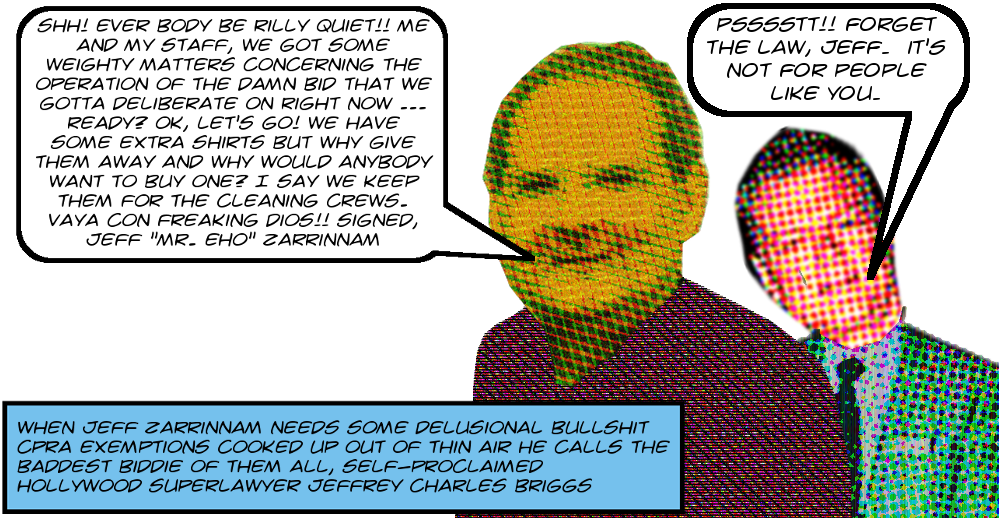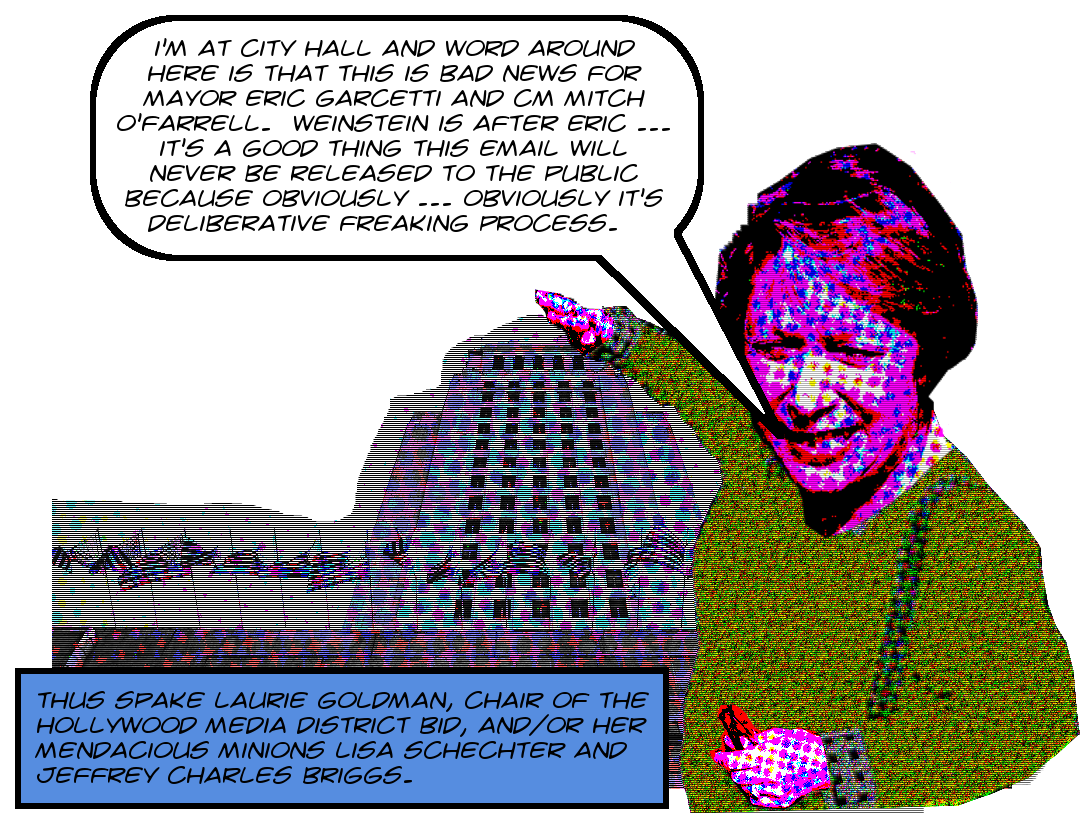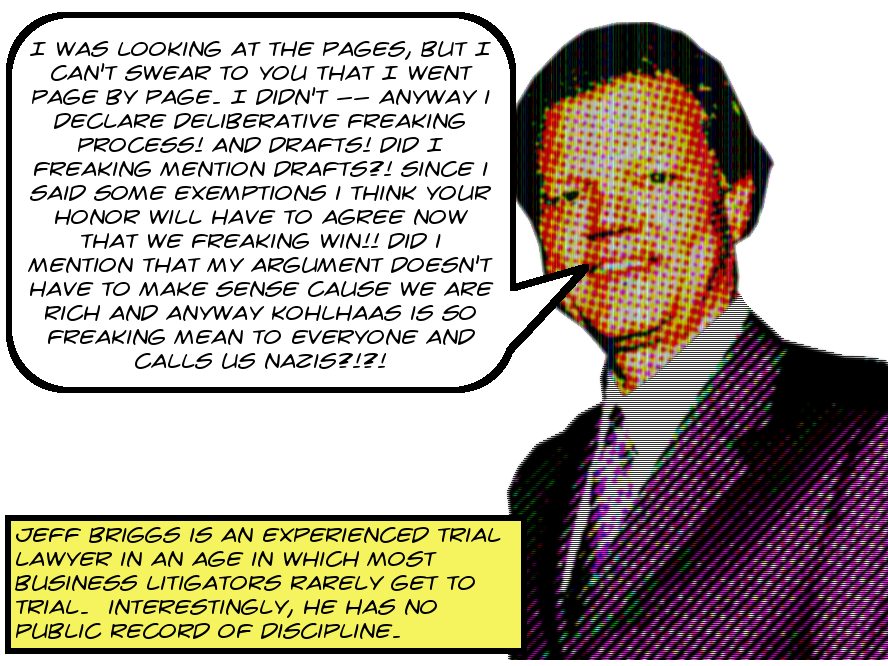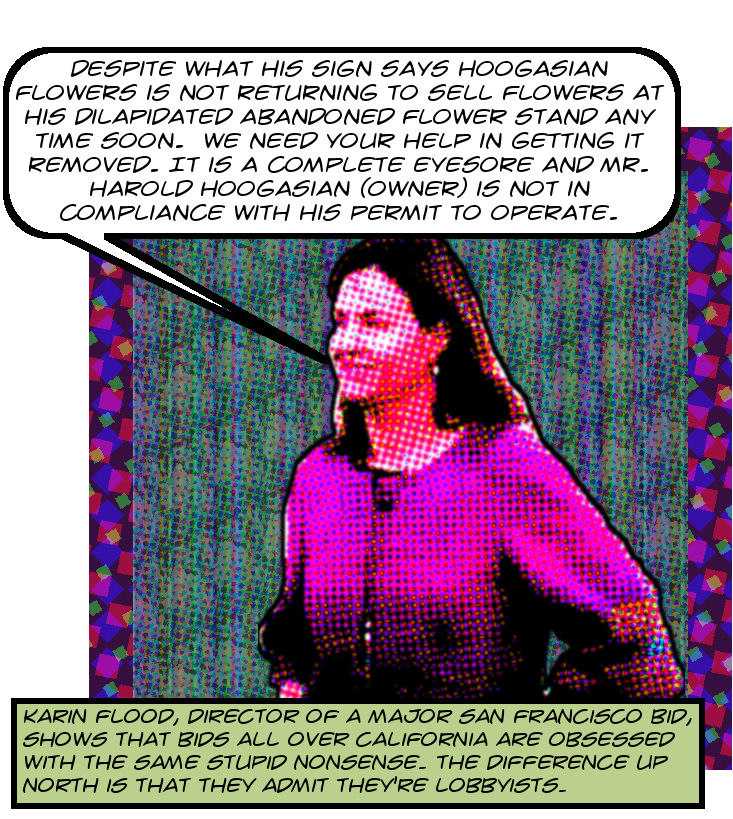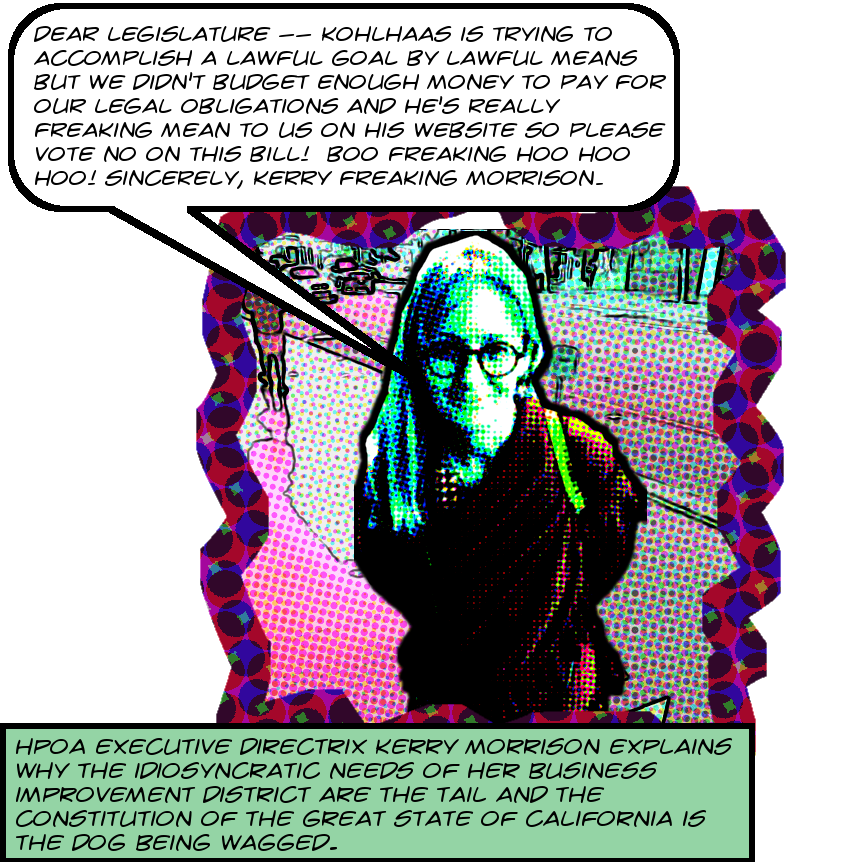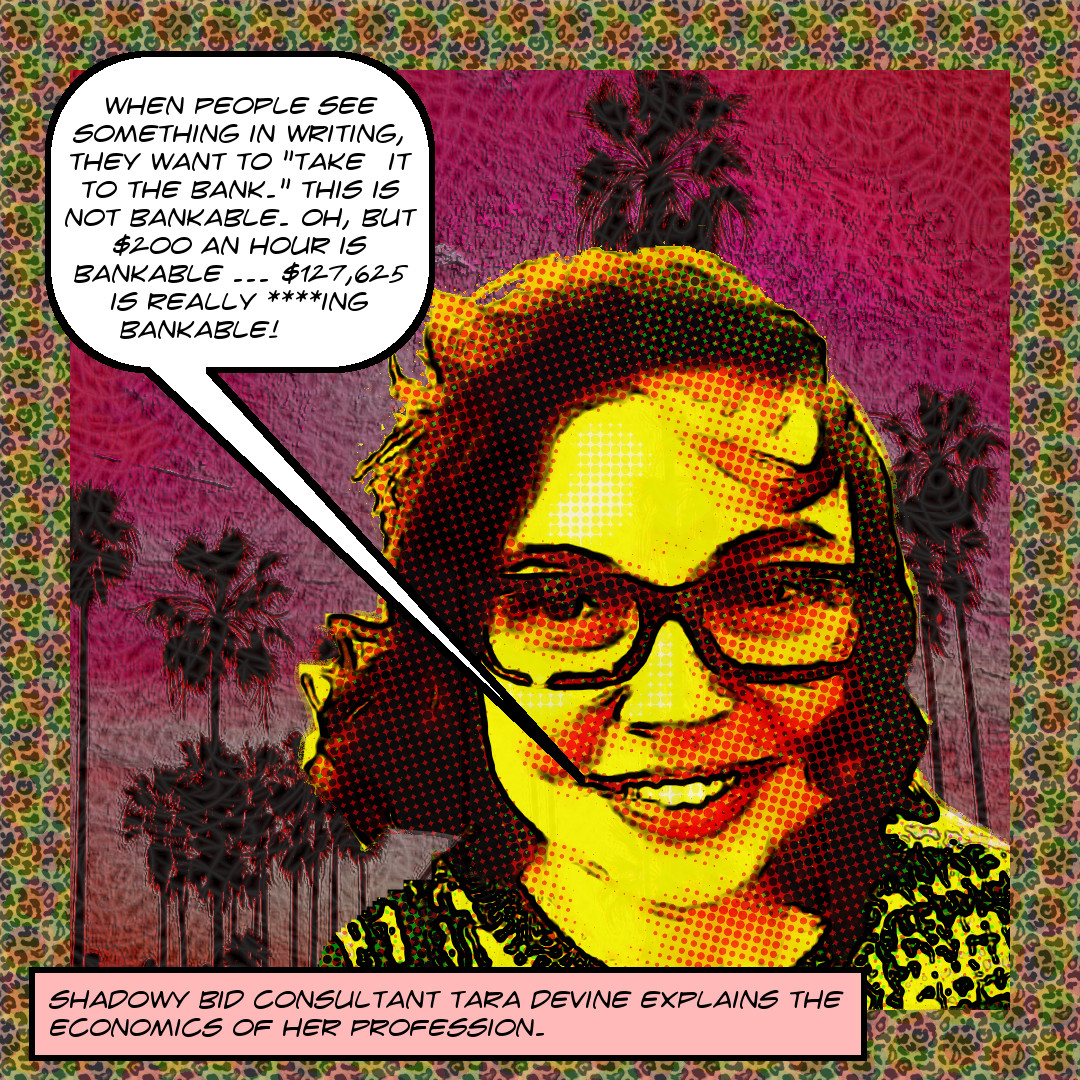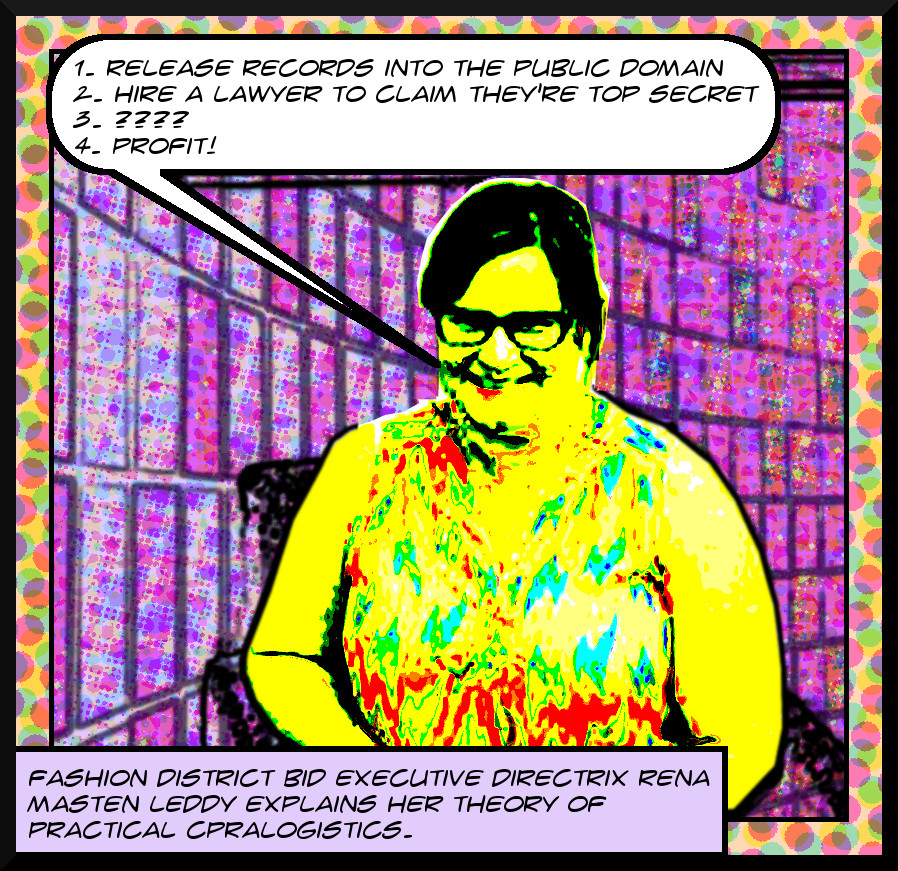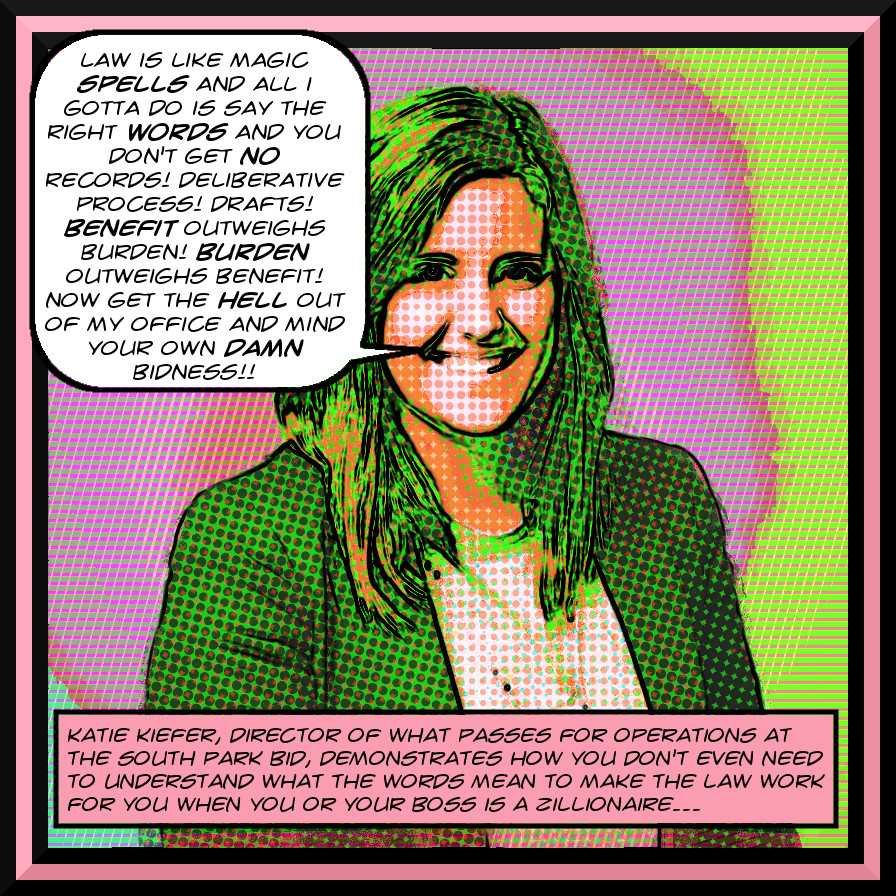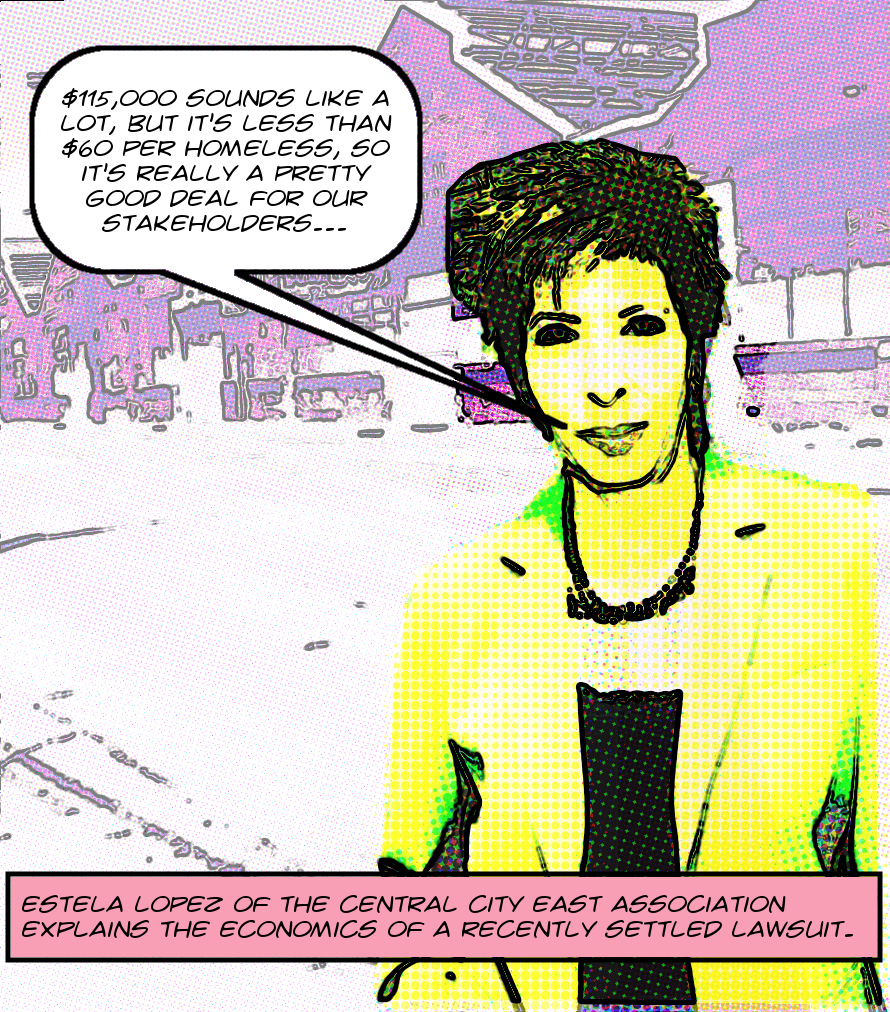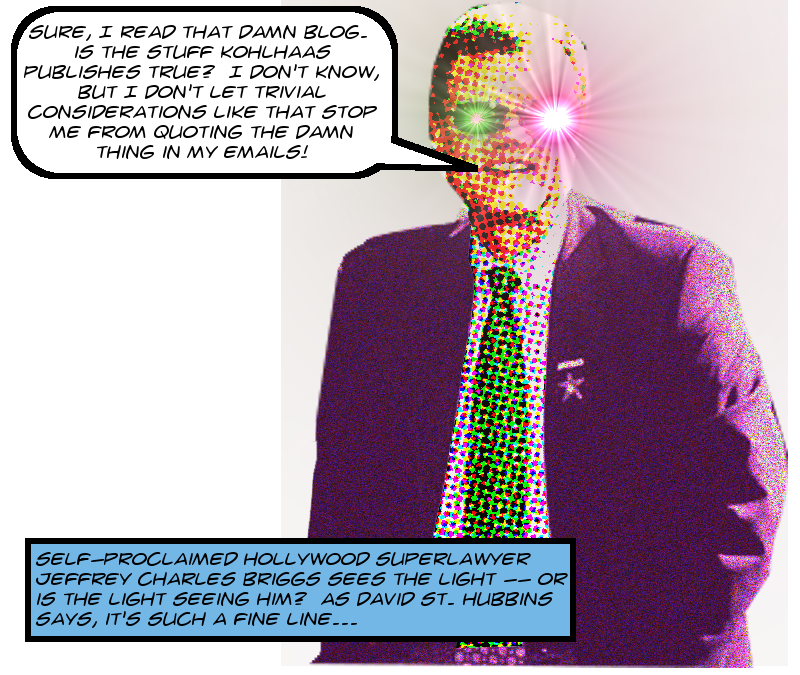 So as you’re probably aware, the staff of this blog is involved in any number of interminable legal battles with various BIDs across the City of Los Angeles for the sole reason that, being zillionaires and therefore suckled on white privilege and Satan’s wine, they cannot, for the damn life of them, just follow the freaking law. And some astonishingly large percentage of this City’s BIDdies are represented in their CPRAfactions by self-proclaimed Hollywood Superlawyer Jeffrey Charles Briggs.1
So as you’re probably aware, the staff of this blog is involved in any number of interminable legal battles with various BIDs across the City of Los Angeles for the sole reason that, being zillionaires and therefore suckled on white privilege and Satan’s wine, they cannot, for the damn life of them, just follow the freaking law. And some astonishingly large percentage of this City’s BIDdies are represented in their CPRAfactions by self-proclaimed Hollywood Superlawyer Jeffrey Charles Briggs.1
Therefore it is not unusual for me to sit down in front of the computer to spend a pleasant hour or so arguing with BIDdies about how they better start handing over the damn goods or else …2 and to spend like 80% of that time swapping electrons with the notorious JCB himself. And I have to say, it’s pretty fulfilling, cause the guy has a hair-trigger temper and I get three points3 every time he loses it.4
So anyway, right now we’re into it about the issue of whether two different versions of an email, with different metadata but the same body content, are distinct records or not. He says no, they’re the same. I say yes, they’re different.5 And he’s maintaining his untenable position for two distinct clients. First, the East Hollywood BID and second, the Hollywood Media District BID. And, my friend, turn the page for more snide remarks, evidence that Mr. JCB reads this blog and quotes it, and, de natch, transcriptions galore!
Continue reading Self-Proclaimed Hollywood Super Lawyer Jeffrey Charles Briggs Adorns His Professional Emails With Quotes From This Blog!! Tacit Endorsement Of Us? Irresistible Freudian Urge To Reveal His Hidden Forbidden Feelings? Stockholm Syndrome? All Of The Above?? Enquiring Minds Wanna Know!!

